Speakers in Workshops
A: Why not practice knowledge? The art of disease prevention
Leif Östman, PhD, is a professor of curriculum studies (“didactics” in Swedish) at Uppsala University. He is one of the founders of the research group SMED (Studies of Meaning-making in Educational Discourses) and the current director of SMED and the research school GRESD (Graduate School for Education and Sustainable Development). He is also a member of the Swedish National Commission for UNESCO and a reviewer of the network Environmental and Sustainability Education Research at the ECER conference. He has been very involved in the institutionalisation of didactics at Uppsala University, starting with work undertaken at the Centre for Curriculum Studies (1987-1997) and continuing within teacher education and the Faculty of Education. Since 2005 he has been the director of curriculum studies.
Anni McLeod, Freelance consultant, United Kingdom
Cortney Price, Global Behavioural Change and Communication Coordinator, Antimicrobial Resistance
B: Lots of talks but little action: What’s hindering the implementation of incentives to stimulate antibiotics R&D?
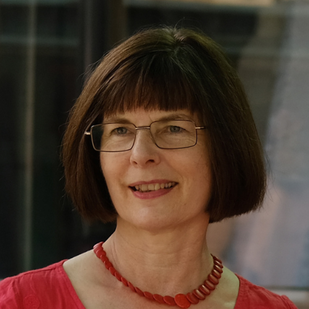
Dr Ursula Theuretzbacher is an expert in antibacterial drug research, discovery/development strategies and policies based on clinical and public health needs. Her broad area of expertise includes public and philanthropic funding strategies for antibacterial drug R&D and initiatives to recover the global pipeline, evaluation and comparative assessment of antibacterial drugs, and optimization of antibacterial therapy concepts. She was a member of the coordinating group of the WHO project Priority Pathogen List for R&D and a leading scientist in the Clinical and Preclinical Pipeline analysis, and development of Target Product Profiles at WHO.
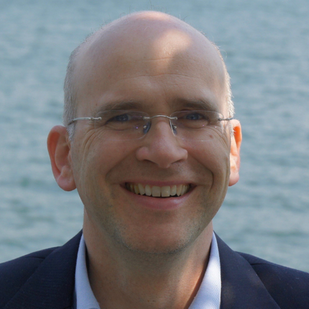
Aidan Hollis studied at Cambridge University and the University of Toronto, where he obtained a PhD in economics. His research focuses on innovation and competition in pharmaceutical markets, and he has published over eighty peer-reviewed articles and two books in a range of fields of economics. He has provided expert reports and testimony in a variety of pharmaceutical-related cases in Federal, Appeals and Supreme Court cases in Canada, and has advised companies and governments. He served on the WHO Guideline Development Group on Antimicrobial Use in Food Animals and is currently on the Expert Advisory Group for the Global AMR R&D Hub. In recent years, he has made invited presentations at (among others) OECD, UNESCO, UN, World Bank, Harvard, Yale, Université Paris Descartes, and LSE.
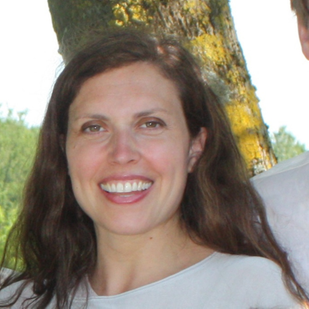
Dr Chantal Morel is a health economist specialising in infectious diseases, and in issues related to antimicrobial resistance in particular. Her work revolves mainly around the use of new financing arrangements and incentives to bolster innovation in the antibiotic pipeline to produce better products, improve surveillance of resistance, support antibiotic stewardship and system-wide sustainable use measures, and increase access to antibiotics where there clinical needs currently unmet by supply.
C: Public Mental Health: Consumer Behaviour and Antibiotic Resistance
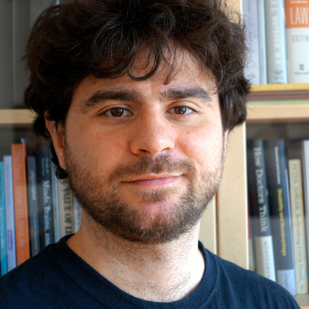
Alberto Giubilini is a Senior Research Fellow at the Oxford Uehiro Centre for Practical Ethics, University of Oxford. He has a PhD in Philosophy from the University of Milan, and prior to joining the Uehiro Centre, he worked in Australia at Monash University, the University of Melbourne and Charles Sturt University. He has published on different topics in bioethics and philosophy, including the ethics of vaccination, procreative choices, end of life decisions, organ donations, conscientious objection in healthcare, the concept of conscience, human enhancement, and the role of intuitions and of moral disgust in ethical arguments. He has published a book on The Ethics of Vaccination (Palgrave MacMillan 2019) and one in Italian on the ethics of end of life decisions (Morals in the Time of Bioethics, Le Lettere 2011), and he co-edited a book on The Ethics of Human Enhancement (Oxford University Press 2016)

Erik Angner, Professor of Practical Philosophy at Stockholm University. His research and teaching grapple with the classical philosophical question “How should people live?” by exploring issues of well-being, rationality, and social order. He earned two PhDs – one in History and Philosophy of Science and one in Economics – both from the University of Pittsburgh. Angner's work is thoroughly interdisciplinary, as he aims to integrate the best available social science with the most careful philosophical reflection. Erik has written two books and a number of papers and book chapters published in journals of philosophy, economics, psychology, medicine, and history of science. For a complete list of his publications, click here.
Elin Nilsson, PhD is a researcher in consumer behaviour and marketing at Umeå School of Business, Economics and Statistics, Umeå University. Her main research interest is in retail, store selection, digital interaction and consumer behaviour. Her internationally award-winning doctoral dissertation touched on what influences consumers' choice of grocery stores and how different situations affect choices. In her postdoctoral fellowship at the Swedish Trade Council, she has focused on how online interaction (such as gamification and social media) affects consumers' buying behaviour. Elin's research also includes digital servicescape, service-dominant logic and co-creation.
D: Resistant Bacteria in the Environment

Lenore Manderson is a Distinguished Professor of Public Health and Medical Anthropology in the School of Public Health, University of the Witwatersrand, and an NRF A-rated scholar. She holds appointments also with Brown University, US, and Monash University, Australia. Her research and training focus on inequality and the social context of infectious and chronic diseases, including treatment regimes and the use and misuse of antibiotics, with field experience in Australia, Southeast and East Asia, and Africa. She has published some 750 books, articles, book chapters and reports, including Sickness and the State (1996) Surface Tensions (2011), Routledge Handbook of Medical Anthropology (2016, with Elizabeth Cartwright and Anita Hardon) and Connected Lives (2020, with Nolwazi Mkhwanazi). She chairs the External Research Review Group of the Social Innovations in Health Initiative of TDR (2015-) and is a member of the Board of Directors of the Society for Applied Anthropology (SfAA). In January 2020 she was admitted as a Member of the Order of Australia.

Dr Suraj K Tripathy is presently continuing as Associate Dean, School of Chemical Technology with a joint appointment with the School of Biotechnology at Kalinga Institute of Industrial Technology (KIIT), Bhubaneswar. He leads the Chemical & Bioprocess Engineering Group at KIIT which works on process integration and intensification for improving resource efficiency and sustainable public health. The major focus of his group is to design sustainable processes and decentralized devices for the treatment of waste and/or drinking water. In particular, his group develops materials from low-cost secondary resources for photocatalytic disinfection of waterborne multidrug-resistant bacteria. He also works closely with industries and wastewater treatment plants to investigate innovative strategies to minimize the discharge of pollutants to natural water bodies.
E: Making Sense of Antimicrobial Resistance: Communicate for Change

Sian Williams is Policy & Advocacy Adviser for Wellcome Trust’s Drug Resistant Infections Priority Programme. Her main interest lies in translating science for evidence-based policy, leading work focused on environmental dimensions of AMR and behaviour change for antimicrobial stewardship. Sian studied Natural Sciences at the University of Cambridge and holds a Masters in Science Communication from Imperial College London. Prior to joining Wellcome, Sian worked for the UK Government’s Global Food Security programme.

Catherine Will's research examines social and health care organisations and technologies, drawing on Science and Technology Studies (STS) and political sociology. She is particularly interested in knowledge production - how people experiment or develop their understanding of their world - and the moments when knowledge claims are linked with the negotiation of standards or policies. Will have worked at the London School of Economics, the University of Cambridge and the University of Sussex, she is on the editorial team of the Sociology of Health and Illness journal and was one of the founding editors of a blog on the politics, economics and sociology of health and health care (Cost of Living). Catherine is currently on research leave working on a Wellcome Trust Investigator Award with the title 'Marginalisation and the microbe: how can we attend to health inequalities while mobilising against antimicrobial resistance' (see website www.marginalisationandthemicrobe.org or @AMRInterrupted on social media).
F: Children and the Wild: Potential Benefits and Perils in Human-Animal encounters
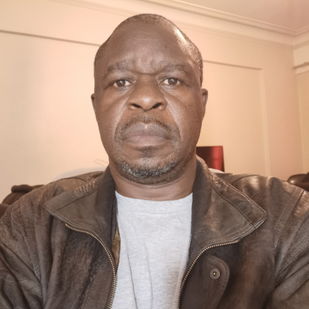
Caleb Mandikonza has a background in Biology and Education for Sustainable Development (ESD) lectures in Science Education at the University of Witwatersrand, Johannesburg, South Africa. During his tenure as Capacity Building Manager at the Southern African Development Community’s Regional Environmental Education Programme (SADC REEP), Experiential Learning which included ‘proximal’ encounters with ‘the natural world’ to unravel ‘patterns in nature’, was one key pedagogical approach to Environmental Education (EE). He currently works to integrate ESD in Life Sciences Education as part of his teacher education curriculum practice as well as continuing teacher professional development practice.
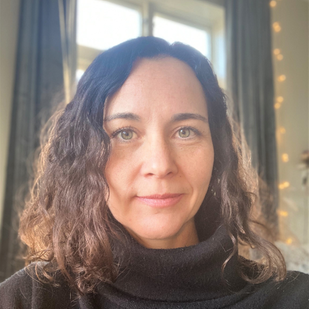
Dr. Kristina Osbjer is a veterinarian with a PhD from the Swedish University of Agricultural Sciences (SLU) and expertise in antimicrobial resistance/use, infectious disease control and multi-sector collaboration in low and middle-income countries. Her career began in large and small animal clinical practise before she joined the Food and Agriculture Organization of the United Nations (FAO) in 2007, with the avian influenza programme in Lao PDR, followed by work at the regional office for Eastern Africa with zoonotic and transboundary disease outbreak management. In 2011, she returned to SLU for PhD-studies on zoonotic diseases before rejoining FAO in 2016 to head the Emergency Centre for Transboundary Animal Diseases in Cambodia. She is since 2019 splitting her time between the Department of Clinical Sciences at SLU where she’s engaged with research and capacity development on antimicrobial resistance/use in Asia and Africa and consultancies for FAO on antimicrobial resistance and infectious disease control in Asia.
G: Where are our antibiotics? Three possible solutions to address antibiotic shortages and improve antibiotics supply globally

Dr Maria Guevara is the new International Medical Secretary, after serving recently as a Senior Advisor on global health at MSF-OCG, with a special interest in Planetary Health. Prior to this, she was the Senior Coordinator for Attacks on Healthcare. From 2012 to 2017, Maria was the MSF Regional Humanitarian Representative in Asia and served as a member of the Advisory Group on Reform for WHO’s Work in Outbreaks and Emergencies with Health and Humanitarian Consequences from July 2015 to January 2016. She is a SAFE STEPS First Aid Ambassador for a collaborative pan-Asia program to promote awareness and increase knowledge of first aid skills across the region. Her work in the humanitarian sector began with MSF in Liberia in 2004. Since then she has held field roles in Guatemala, Haiti, DRC, Nigeria, Myanmar, the Philippines, Indonesia, Malaysia and South Sudan, in both emergency and stable settings. A Pulmonary and Critical Care Medicine specialist, Maria also holds a Diploma in Tropical Medicine and Hygiene from the Liverpool School of Tropical Medicine and a Master of Science in Global Health Policy from the London School of Hygiene and Tropical Medicine.
Richard Bergström received his degree in pharmacy from Uppsala University in 1988. Four years at the Swedish Medical Products Agency have been followed by, to say the least, a successful career based in Switzerland. Positions at industry giants Roche and Novartis led to the position as CEO at the Pharmaceutical Industry Association (LIF) and later the European Federation of Pharmaceutical Industries and Associations (EFPIA). In the summer of 2020, he was asked by his native country to accept the position of national vaccine coordinator during the ongoing coronavirus pandemic.
H: Teaching AMR: Schools as change agents
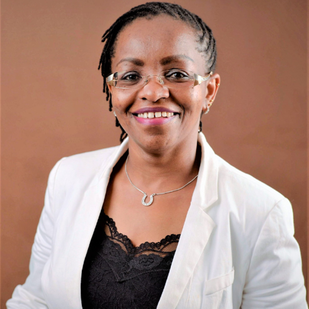
Tracie Muraya is a Policy Officer at ReAct (Action on Antibiotic Resistance) Africa, where she advocates for and supports the development and implementation of member countries’ National Action Plans on antimicrobial resistance (AMR) based on policies that are informed through iterative evidence. Through her role, she engages with different stakeholders at international, regional and national levels ranging from policymakers and healthcare professionals to communities at the grassroot level to catalyse action on AMR. She has also contributed to the development of different regional and national policy documents. Tracie is a trained pharmacist with 15 years of experience in strengthening health systems and holds a Bachelor of Pharmacy degree from Rhodes University, South Africa and a Postgraduate Diploma in Public Health from the University of Liverpool. She is currently pursuing a Master’s in Public Health with a specialization in Global Health Policy at the University of Suffolk.
Dr Bjarne Bruun Jensen is a professor in health promotion and senior advisor at Steno Diabetes Center Copenhagen in Gentofte, Denmark. Bjarne Bruun Jensen is an Adjunct Professor at Aalborg University (Denmark) and the Norwegian University of Science and Technology (Norway). He is one of the leading international researchers in health promotion, including the concepts of user participation, salutogenesis, empowerment, health literacy and action competence. Dr Jensen has published 29 books, 104 articles in journals, and 96 chapters in books. He is the editor of 31 books. He has recently been elected as Vice President for European Region in the International Union for Health Promotion and Education and will serve on its Executive Board from 2016-to 2019. He is also a board member of the Danish society for public health.
